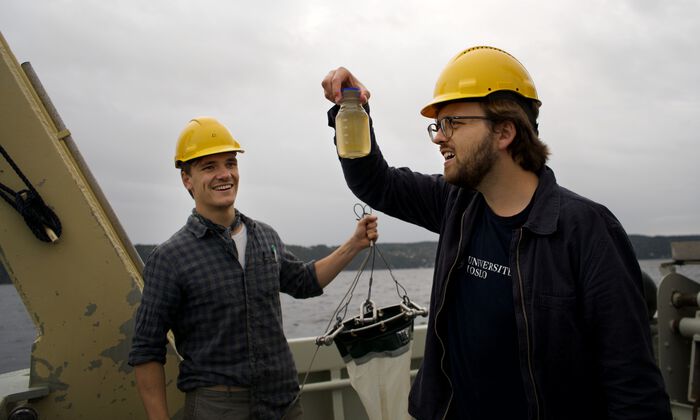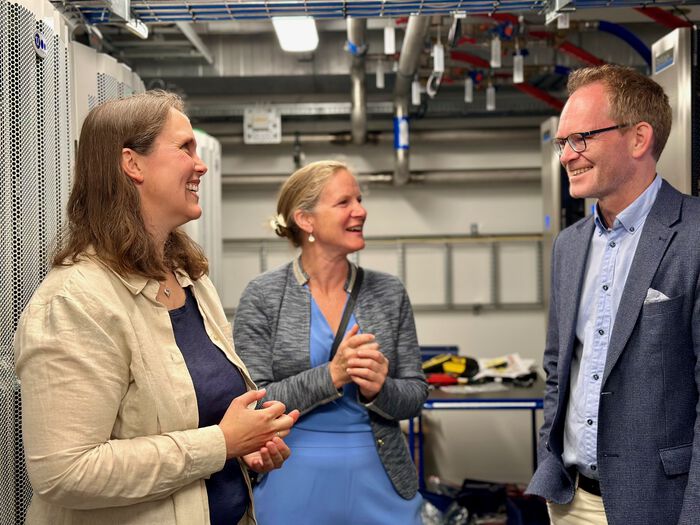“I think the next century will be the century of complexity”, said the well-known Cambridge professor Stephan Hawking in an interview with San Jose Mercury News in January 2000.
Behind this statement we find a collection of trends pointing in this direction. We are facing a global political landscape that is increasingly more complex. The international economic situation is confusing and we read about economic crises in many countries. Diversity - ethnic and cultural - with all its complex relations and questions is becoming an increasingly larger part of our everyday life. The internet - the global information highway – connects more and more people and ICT-systems, generating new complex relations, dependencies and contexts. Climate change has generated global challenges with a complexity that the world has never seen. The world population exceeded seven billion people last year, and the proportion of elderly people is growing. How can we, in a sustainable way, supply the world with sufficient resources in the next 50 years, and how can modern medicine and healthcare technology ensure a decent old age for numerous people all over the world? In this picture, ICT plays an increasingly important role, both in itself and as an enabling technology for sustainable research and development across disciplines. The world is continuously facing situations where the development of large ICT systems are either stopped or carried out with large cost overruns. There are numerous reasons for this, but we know that in most occurrences, neither the contractor nor the supplier of technology has understood the overall complexity of an integrated systems. An important aspect when developing distributed ICT-systems is of course the technical complexity, but equally important is the use aspects that are particularly complex in large distributed systems and organizations. We need to solve complex puzzles in an increasingly integrated ICT world. The 7th framework programme (FP7) in the European Union will soon be history, and Horizon 2020 (the next framework programme) is about to be drafted and will be launched in 2014. The overall goal for the ICT part of Horizon 2020 should be to understand and resolve the complexity of development and use of ICT solutions. This includes a series of aspects in the realm of ICT - from challenges in the core of ICT to interdisciplinary actions involving competence from science and technology, industrial leadership and societal challenges. Furthermore, in order to develop the next generation ICT systems, Europe has to develop a stronger knowledge base in ICT, hence put more emphasis into higher education of the ICT workforce of tomorrow. However, this is not enough. There is also a need for new approaches to build digital competence in the entire population. Europe must therefore modernise the concept of digital competence in primary school, e.g. by creating a more thorough understanding of the ICT field among teachers. The answer to complex questions and challenges are precisely the task of research. It is about understanding and interpretation of complex situations; it is about organization of complex “landscapes”; it is about the challenges of finding in-depth explanations to compound problems; and last but not least, research contributes to the development of new and robust solutions throughout society. In addition to the basic long-term and penetrating research, it is of crucial importance that we cultivate scientific convergence (interdisciplinarity) in a scale that is completely different from what is being done today. In order to develop future ICT systems for healthcare it is not sufficient to understand ICT on its own. International politics cannot be conducted without having the understanding of how technology is changing the world. If we want to find climate-friendly energy solutions for the global population, we must pave the way for a broad research effort across many disciplines. Important phenomena in medicine and biology can only be understood through the use of advanced computer science and mathematical methods. The list of complex challenges is long and this list continues to grow . In this respect, ICT plays an extremely important role and further strengthening of research and education in ICT is the key to the future. Stephen Hawking announced the century of complexity. He was right!




